
He has succeeded who purifies the soul, and he has failed who corrupts it.”
📖 Quran – Surah Ash-Shams, 91:9–10
In a world of endless noise, distraction, and rush, many hearts whisper the same question:
“Is there more to life than this?”
Many of us feel an aching emptiness that cannot be filled by possessions, achievements, or digital connections. Despite comfort and progress, anxiety, depression, and spiritual dryness are becoming widespread. The heart silently asks: “Is this all there is to life? What is my soul yearning for?”
In Islam, the answer comes not from outside, but from within. It is in the quiet space of your soul, in the moments between breaths, where spirituality begins. It is the nourishment of the soul, the inner peace of the believer, and the bridge between our fleeting world and the eternal Hereafter. Spirituality in Islam is not separation from the world; it is living in it with purpose, presence, and profound connection to Allah.
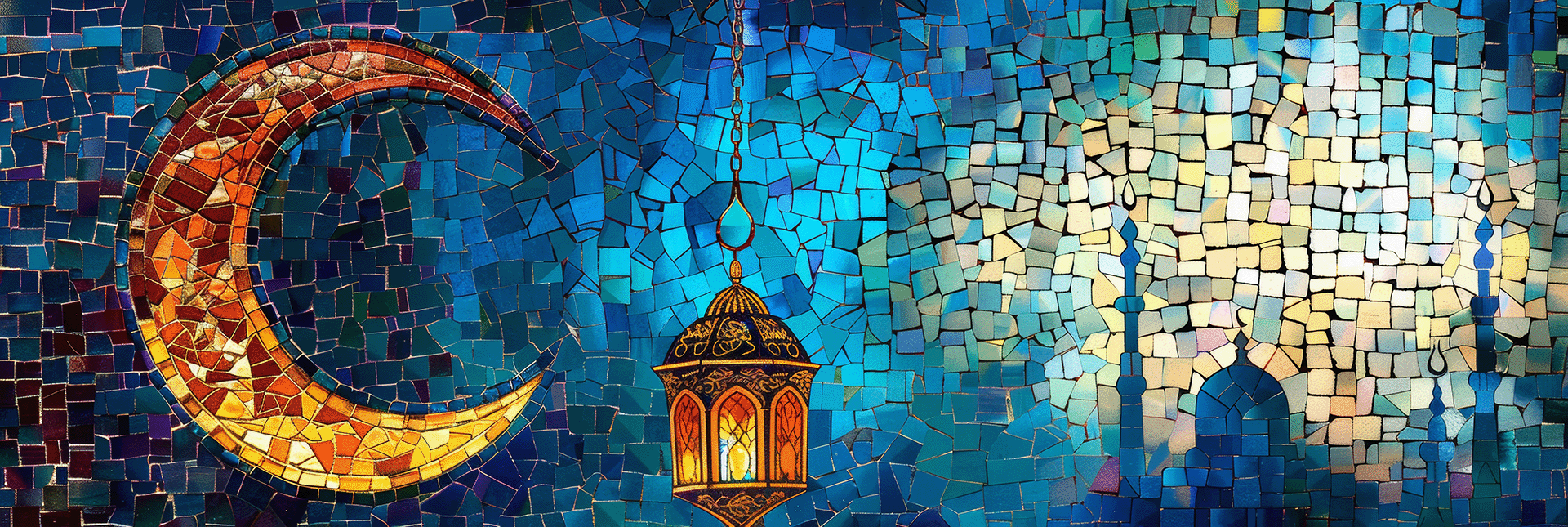
What is Spirituality?
Spirituality is the personal, inner experience of connecting with something greater than oneself. It often involves seeking meaning, purpose, and a deeper understanding of life, existence, and one’s place in the universe. While spirituality can be tied to religion, it doesn’t have to be—many people consider themselves spiritual without following a specific faith.
Here are a few key ideas that are commonly associated with spirituality:
Connection – with God, a higher power, nature, the universe, or even with others.
Inner peace – feeling calm, centered, and in tune with yourself.
Purpose and meaning – trying to understand why you’re here and what your life is about.
Growth and transformation – becoming a better person, understanding your values, and living a life aligned with them.
Mindfulness and presence – being aware of the present moment, often through practices like meditation, prayer, or reflection.
Spirituality in Islam
Spirituality in Islam is a deeply rooted inner state of consciousness and connection with Allah. It means living with taqwā (God-consciousness), practicing ikhlāṣ (sincerity), and striving for ihsān (excellence) in all that we do.
In Islam, spirituality is about building a close, sincere relationship with Allah (God), purifying the heart, and living with consciousness of His presence — this is known as taqwa.
Here are six way how spirituality connects with Islam:
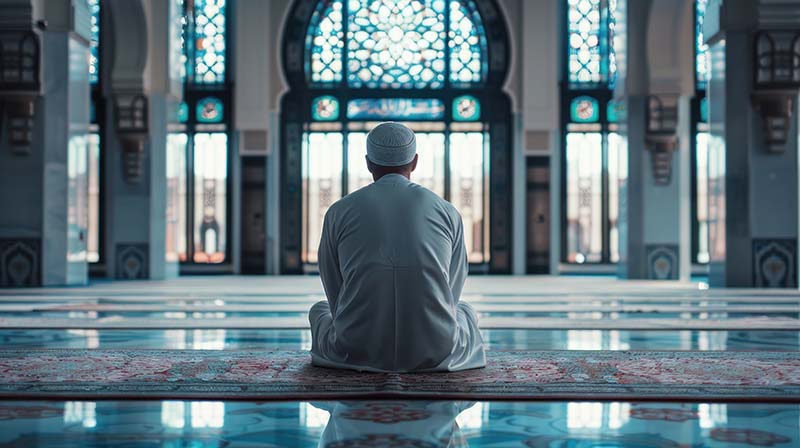
1. Worship (ʿIbādah) as a Spiritual Practice
Every act of worship — prayer (ṣalāh), fasting (ṣawm), giving charity (zakāh), and pilgrimage (ḥajj) — is meant to draw the believer closer to Allah. It’s not just ritual; it’s spiritual connection.
The Prophet Muhammad ﷺ said:
“Prayer is the light of my eyes.” (Nasai)

2. Sincerity (Ikhlāṣ)
Islam places great importance on doing things purely for the sake of Allah. That inner intention, or niyyah, transforms ordinary acts into acts of worship.
The Prophet Muhammad ﷺ said:
“Actions are judged by intentions.” – (Bukhari & Muslim)

3. Dhikr (Remembrance of Allah)
Remembering Allah through phrases like SubḥānAllāh, Alḥamdulillāh, and Allāhu Akbar fills the heart with peace.
“Verily, in the remembrance of Allah do hearts find rest.” – Qur’an 13:28

4. Tazkiyah (Purification of the Soul)
Islamic spirituality emphasizes cleansing the heart of arrogance, hatred, greed, and envy, and filling it with love, patience, humility, and gratitude.
“He has succeeded who purifies it (the soul).” – Qur’an 91:9

5. Ihsan – The Highest Level of Faith
The Prophet ﷺ defined ihsan as:
“To worship Allah as if you see Him, and if you cannot see Him, know that He sees you.” – (Bukhari & Muslim)
When Jibril (Gabriel) asked the Prophet ﷺ about ihsan, he replied:
“It is to worship Allah as if you see Him, and if you cannot see Him, know that He sees you.”
This is the pinnacle of Islamic spirituality — where your every word, choice, and moment is filled with presence, purpose, and love.
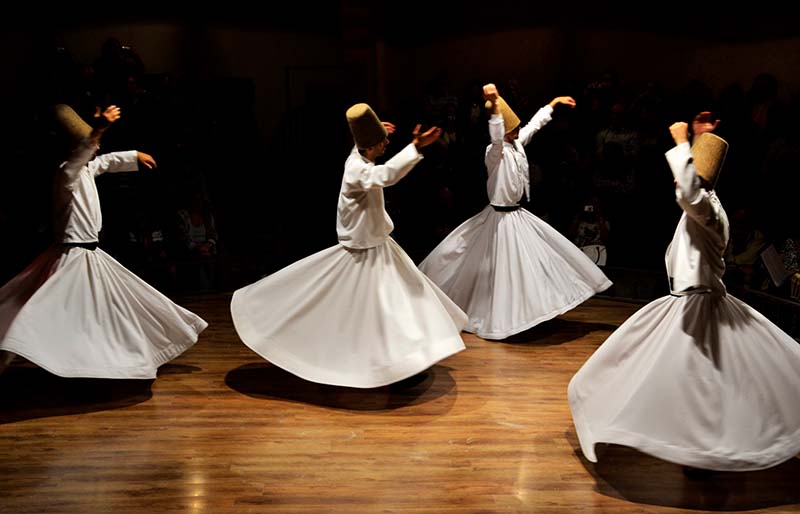
6. Sufism (Tasawwuf)
In Islamic tradition, Sufism is the spiritual path focused deeply on the inner dimensions of faith, love of God, and purification of the heart. Though not separate from Islam, it places extra emphasis on personal connection to Allah through dhikr, poetry, and deep contemplation.
The Heart - The Seat of the Soul
In Islam, the heart (qalb) is more than an organ. It is the center of spiritual perception.
“On the Day when neither wealth nor children will benefit anyone, except he who comes to Allah with a sound heart. – Quran – Surah Ash-Shu‘arā’ (26:88-89)
Rumi, a 13th-century Muslim mystic, brought Islamic spirituality to life through poetry. He was known for his deep, poetic expressions of divine love and unity with God. According to Rumi, you find spirituality through the heart that breaks, the ego that surrenders, and the love that consumes you.
Rumi believed that everything in life — pain, joy, longing, even loss — is a call from Allah to return to Him. He didn’t view spirituality as dry or distant — for him, it was a burning flame, a mad love, a divine dance of the soul.
“What you seek is seeking you.” – Rumi
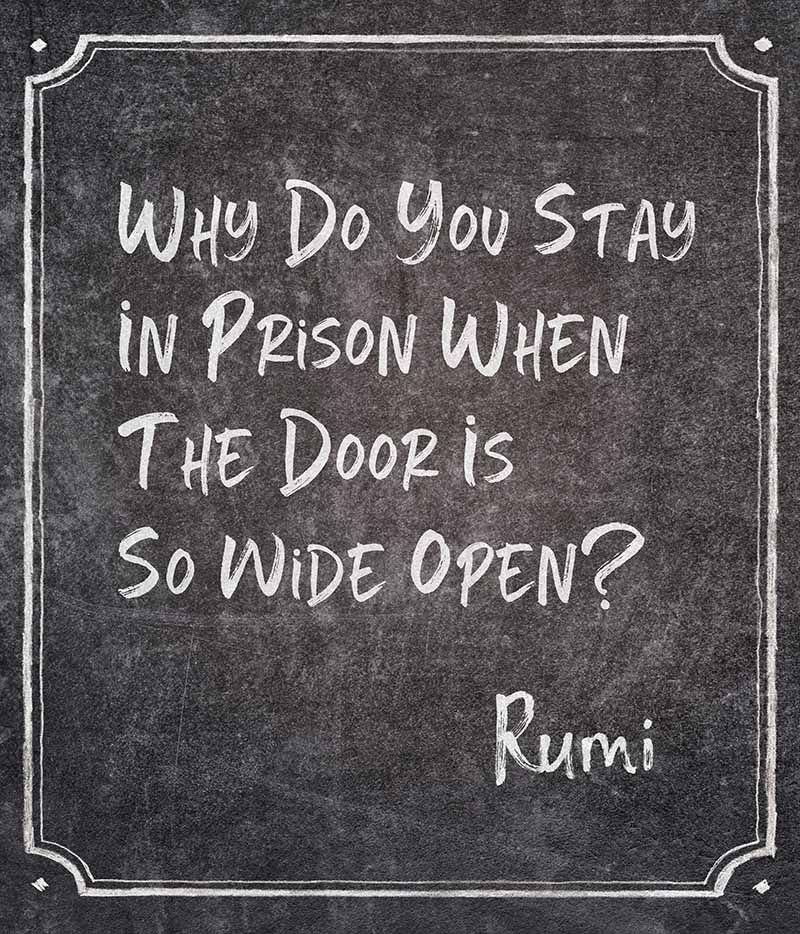
Let go. Surrender. Fall in love with the One who created love.
The Prophet Muhammad (PBUH) said:
“Truly, in the body there is a piece of flesh which, if it is sound, the whole body is sound. And if it is corrupted, the whole body is corrupted. Truly, it is the heart.” – Bukhari & Muslim
Spirituality begins with the purification of the heart from diseases like pride, envy, hypocrisy, and arrogance, and filling it with love, sincerity, humility, and remembrance.
“With life as short as a half-taken breath,
don’t plant anything but love.” – Rumi
“Verily, in the remembrance of Allah do hearts find rest.”
Qur’an 13:28
Purification of the Heart (Tazkiyah al-Qalb)
Purifying the heart — known in Arabic as “tazkiyat al-qalb” — is one of the core goals of Islam. It’s the process of cleaning your inner self from spiritual diseases (like arrogance, envy, hatred) and filling it with light — like humility, patience, love, and sincerity.
Think of it like polishing a mirror: when the heart is pure, it reflects the light of Allah clearly.
Tazkiyah means to purify, grow, and elevate. The Quran often highlights the importance of purifying the soul:
“He has succeeded who purifies the soul, and he has failed who corrupts it.” – Quran – Surah Ash-Shams, 91:9-10
Common Spiritual Diseases & Their Cures
- Riyā’ (Showing off) – Doing good for praise
- How to Heal: Renew your intention before every act
- Hasad (Envy) – Resenting others’ blessings
- How to Heal: Make duʿāʾ for them instead
- Takabbur (Arrogance) – Feeling better than others
- How to Heal: Remember your origin: dust, then a soul
- Ghaflah (Heedlessness) – Living without remembering Allah
- How to Heal: Increase dhikr, be present
- Kibr (Pride) – Rejecting truth or looking down on others
- How to Heal: Follow the example of the Prophet Muhammad’s (PBUH) humility
“Say, ˹O Prophet,˺ “I seek refuge in the Lord of the daybreak; from the evil of whatever He has created, and from the evil of the night when it grows dark, and from the evil of those ˹witches casting spells by˺ blowing onto knots, and from the evil of an envier when they envy.”
Quran – Surah Al-Falaq (113:1-5)

The Wisdom of Rumi & Other Spiritual Masters
1. Prophet Muhammad ﷺ (The Ultimate Spiritual Guide)
Prophet Muhammad (PBUH) is the ultimate spiritual guide and an example of spirituality in action for all mankind. He taught taqwa, ikhlas, tawakkul (trust in Allah), and ihsan. His night prayers, tears in sujood, and kindness even to enemies showed true spiritual strength.
“My eyes sleep, but my heart does not sleep.” – Prophet Muhammad (PBUH) on his constant awareness of Allah
He said:
“Allah does not look at your appearance or wealth, but rather He looks at your hearts and deeds.” – Sahih Muslim
His life was a balance of worship, compassion, justice, and deep love for Allah.
2. Rumi – The Poet of the Soul’s Return (1207–1273 CE)
The 13th-century mystic Jalal al-Din Rumi captured the essence of Islamic spirituality not in legal terms, but in songs of love.
“Listen to the reed flute, how it tells its tale
Lamenting its separation since it was cut from the reed bed…”
To Rumi, our longing, our sadness, even our restlessness — all point to a single truth:
You were made for something more.
You were made for Allah.
He taught that the path to God is not only through books and rules, but through the longing of the heart, the quiet tears in sujood, the wounds that make you turn back to Him.
“You were born with wings, why prefer to crawl through life?”
“Don’t grieve. Anything you lose comes round in another form.”
“The wound is the place where the Light enters you.” – Rumi
These words echo the Quranic truth:
“Perhaps you hate something and it is good for you, and perhaps you love something and it is bad for you. Allah knows, while you know not.” – Quran – Surah Al-Baqarah, 2:216
Through poetry, metaphor, and parables, Rumi opened hearts to the inner journey of Islam.

The Forty Rules of Love: A Novel of Rumi
In this lyrical, exuberant tale, acclaimed Turkish author Elif Shafak, author of The Island of Missing Trees (a Reese's Book Club Pick), incarnates Rumi's timeless message of love.
The Forty Rules of Love unfolds two tantalizing parallel narratives—one contemporary and the other set in the thirteenth century, when Rumi encountered his spiritual mentor, Shams, the whirling dervish—that together explore the enduring power of Rumi's work. A Must Read!
3. Imam Al-Ghazali (1058–1111 CE)
Other spiritual scholars like Imam Al-Ghazali emphasized the inner dimensions of worship. He’s known for bridging Islamic law and spiritual purification and revived Islamic spirituality at a time when people were focused only on outward knowledge.
“The outer actions are the body of the religion, and the inner reality is its soul. A body without a soul is a corpse.” – Imam Al-Ghazali
His legacy taught us that knowledge without spiritual awareness is hollow.
4. Shaykh Abdul Qadir al-Jilani (1077–1166 CE)
The great 11th-century saint, scholar, and founder of the Qadiriyya Sufi order was known for his deep wisdom, humility, and powerful sermons calling people back to sincerity and obedience.
“Do not turn away from your Lord because of trials. Every hardship is a gift. Every loss, a gain. And every delay, a preparation.”
“Be like the earth—people throw all kinds of dirt on it, but it only brings forth beauty and life.”
He emphasized the love of Allah, service to humanity, and breaking the ego.
“Cleanse your heart until it becomes worthy of reflecting the Light of Allah. For a heart polluted with desires cannot contain the Truth.”
Shaykh Abdul Qadir Al-Jilani
Conclusion: Return to the Source
Spirituality in Islam is not about perfection. It’s about returning — again and again — no matter how many times you fall. The Qur’an promises:
“Say, O My servants who have transgressed against themselves, do not despair of the mercy of Allah…” – Qur’an 39:53
So breathe.
Feel.
And remember — Allah is nearer to you than your own heartbeat.
“With life as short as a half-taken breath,
Don’t plant anything but love.” – Rumi
“Come, come, whoever you are. Wanderer, worshiper, lover of leaving. It doesn’t matter. Ours is not a caravan of despair.” – Rumi
So begin again. Even if you feel far, the door to Allah is never closed. In fact, He says:
“And when My servants ask you concerning Me – indeed, I am near. I respond to the invocation of the supplicant when he calls upon Me.” – Quran – Surah Al-Baqarah, 2:186
Spirituality is not a destination. It is the journey back to your heart — and through it, to Allah
“Indeed, the righteous will be among gardens and springs. Accepting what their Lord has given them. Indeed, they were before that doers of good. They used to sleep but little of the night. And in the hours before dawn, they would ask forgiveness.” – Quran – Surah Adh-Dhāriyāt (51:15-18)
O Allah, make my heart forever connected to You. Let Your remembrance be my comfort, Your obedience my peace, and Your pleasure my goal. Purify my heart from anything that distances me from You. Fill it with Your light, and fill my life with Your love.
Ameen.
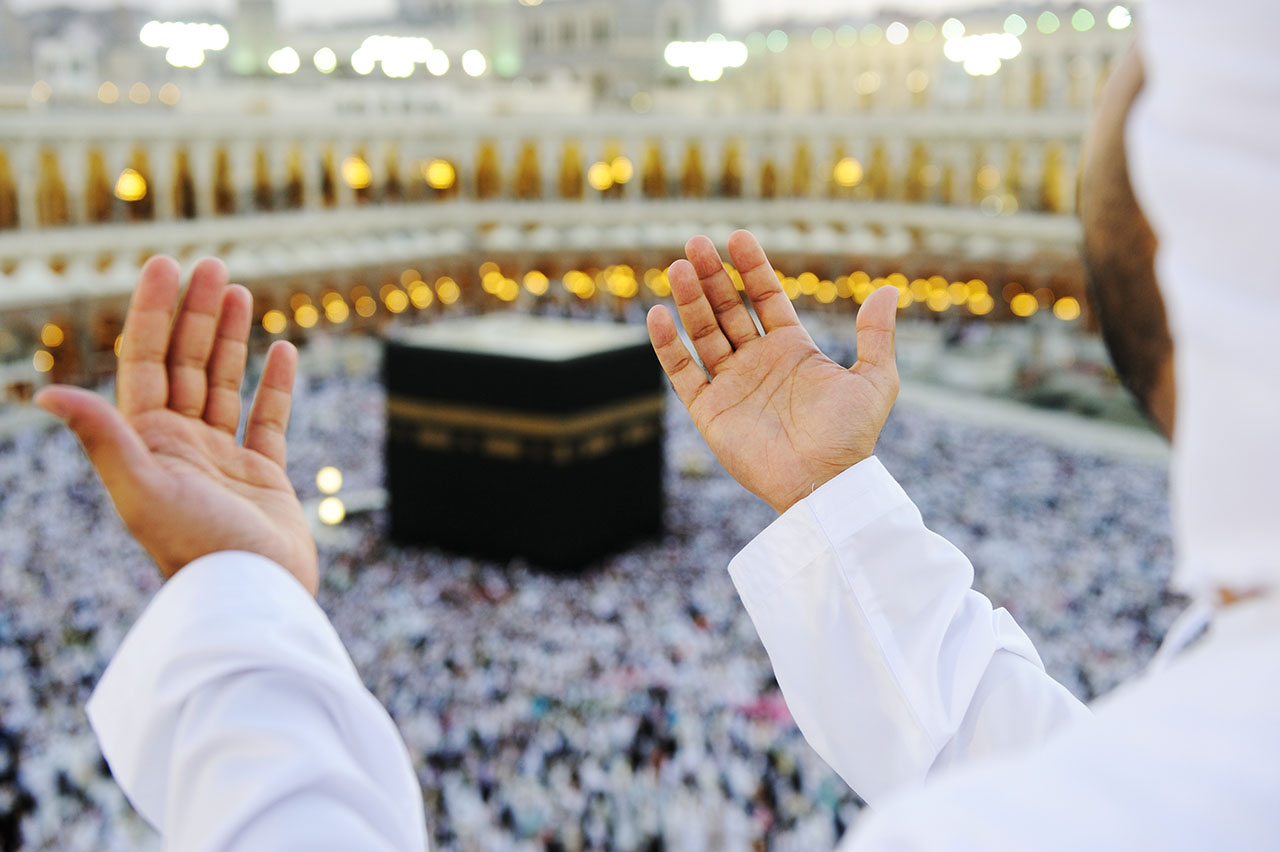
Begin your journey back to Allah. Start with a sincere prayer, and know that He is always near. Explore more on Click on Islam.
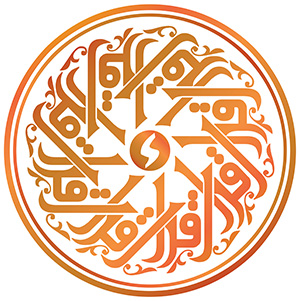



0 Comments